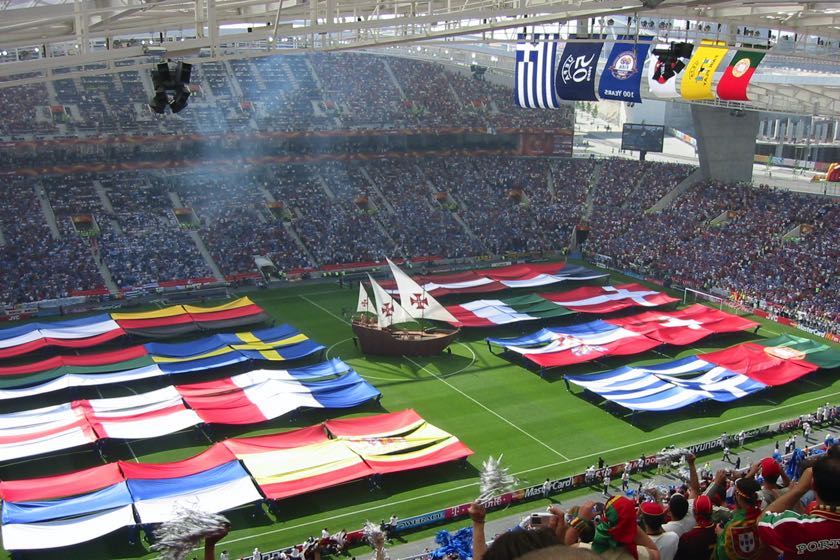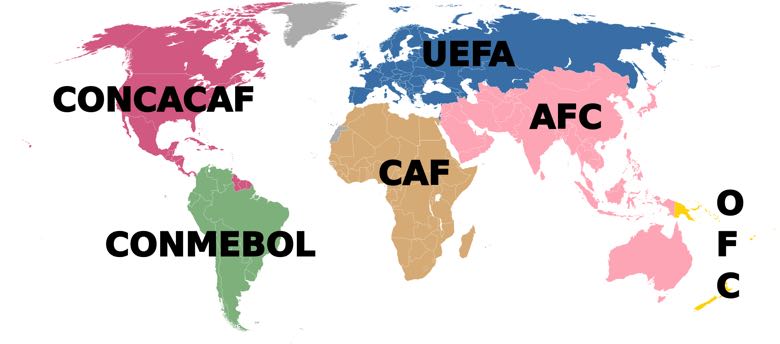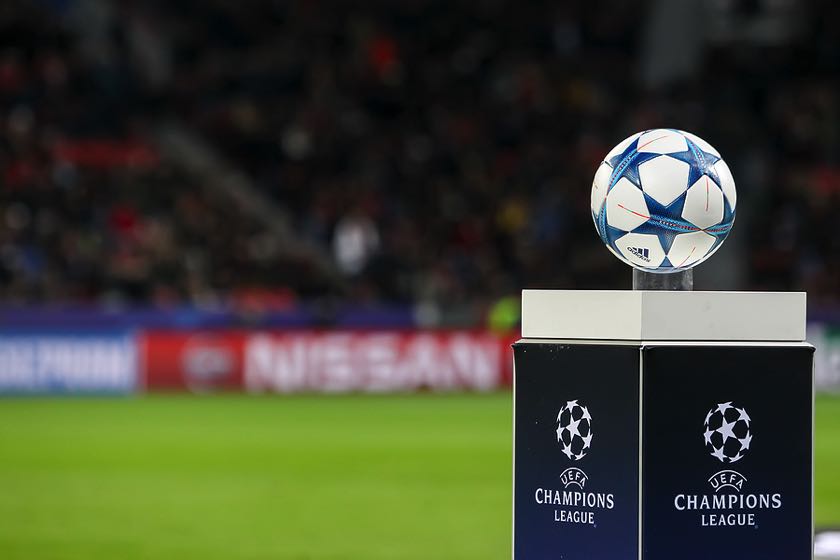Depending on your view and experience, FIFA are either the facilitators of world football, bringing the beautiful game to billions of people around the globe, or corrupt overlords using football to further their own financial and political ambitions.
A similar pair of conclusions might be drawn about UEFA, who perform a similar function to FIFA – albeit exclusively for the European continent (and some rare exceptions, more on those later). So, while they are bestowed the power to govern European football, what is it that UEFA actually does?
What Does UEFA Stand For?
 The acronym UEFA stands for ‘Union of European Football Associations’. In the more philosophical sense, UEFA as an organisation stands for ‘ensuring that football is the most played, trusted, competitive, engaging and responsible sport.’
The acronym UEFA stands for ‘Union of European Football Associations’. In the more philosophical sense, UEFA as an organisation stands for ‘ensuring that football is the most played, trusted, competitive, engaging and responsible sport.’
What Does UEFA Do?
You could almost describe UEFA as an ‘association of associations’, given that one of its primary functions is to oversee the organisation of football in each of its (at the time of writing) 55 member countries. As well as upholding the integrity of the beautiful game in those nations, UEFA is also tasked with running the intra-continental competitions in men’s and women’s football – it’s best known is the Champions League.
But key UEFA officials haven’t always been upstanding in their upholding of these functions. An investigation into corruption at FIFA saw UEFA dragged into the scandal, with former UEFA president Michel Platini accused of accepting a payment of £1.6 million.
He and then FIFA chief, Sepp Blatter, were eventually cleared of their corruption charges, although the Frenchman did admit to receiving the sum for his ‘consultancy services’. He was banned from all football-related activity for four years.
What Competitions Does UEFA Run?

Aside from all of their administrative functions, UEFA’s most important job is to keep their suite of club and international competitions running effectively.
The European Championship
One of their most famous tournaments is the European Championship, the quadrennial international event first played in 1960. Aside from the World Cup, this is the most prestigious prize in international football that countries from the continent play for.
Introduction of the Nations League
UEFA also oversaw the introduction of the Nations League to the international calendar in 2018. This pits countries against one another in a league-style schedule, although it has been described by some as a pointless cash grab that puts further pressure on the health and wellbeing of footballers, who barely get a rest as it is.
The Champions League
The leading club teams in Europe get a chance to pit their wits against one another via a series of UEFA-ran competitions. The Champions League is the crème de la crème – the best-performing teams from the nations boasting the highest coefficient ranking do battle for one of club football’s most prestigious trophies, and the handsome prize money that goes with it.
Europa League
The second tier of UEFA intra-continental football is the Europa League, formerly known as the UEFA Cup, while a third competition was added to the calendar in 2021 – the Europa Conference League enables more clubs to taste European football.
UEFA Super Club
Then there is the UEFA Super Club, which is – let’s be honest – another cash grab that pits the winners of the previous season’s Champions League and Europa League against one another in a game played in a neutral European country that might not otherwise see elite-level football.
With a nice monopoly on club and international football, UEFA are in a lovely position – which is why they took the moral high ground when plans for a breakaway European Super League (ESL) were revealed in 2021.
A consortium of clubs, backed by wealthy investors and equity givers, planned to quit their UEFA membership and set up their own intra-continental competition. UEFA took them to court, and that legal action – allied to the vociferous backlash of many of the clubs involved supporters – saw that original ESL concept become dead in the water. For the time being, at least.
Is UEFA Owned by FIFA?
 If you can imagine a hierarchical structure of world football, there are geographical administrators of the sport – UEFA in Europe, AFC in Asia, CONCACAF in North and Central America and the Caribbean, CONMEBOL in South America and CAF in Africa.
If you can imagine a hierarchical structure of world football, there are geographical administrators of the sport – UEFA in Europe, AFC in Asia, CONCACAF in North and Central America and the Caribbean, CONMEBOL in South America and CAF in Africa.
FIFA is the umbrella organisation that exists above each of these authorities, acting as the super-power that holds each of them to account in the overall aim of improving football governance and participation around the globe.
Therefore, FIFA are effectively the bosses of UEFA – although the global organisation doesn’t have the power to tell UEFA how to operate or run its competitions. Indeed, the two bodies have clashed on many topics over the years – including FIFA’s dreadful notion of holding the World Cup every two years, which would essentially render UEFA’s European Championship obsolete.
Which Countries Are UEFA Members?

In a nutshell, if a country is located in Europe and has its own football clubs, they will be a member of UEFA. Some 29 European nations were the first to gain UEFA affiliation in 1954, including the member nations of the UK, Ireland and powerhouses such as France, Spain, Italy and Germany.
Global conflict has seen new UEFA members created, such as the dissolution of the Soviet Union and Yugoslavia, while countries that have gained independence in latter years – such as Montenegro and Kosovo – have also been admitted.
The only significant European nation without UEFA membership (currently) is Russia, who were barred from competing in the authority’s competitions in the wake of the war against Ukraine. They have since allowed the nation’s youth teams back into their tournaments, although the senior men’s and women’s teams are still suspended as of February 2024.
Countries that can be described as trans-continental, geographically speaking, such as Turkey, Azerbaijan and Kazakhstan, have been admitted as UEFA members, while Cyprus and Armenia – technically both in Asia – are also allowed to compete in UEFA competitions. And, in 1994, Israel were allowed to participate in UEFA competitions too, despite its home best being described as in West Asia.

